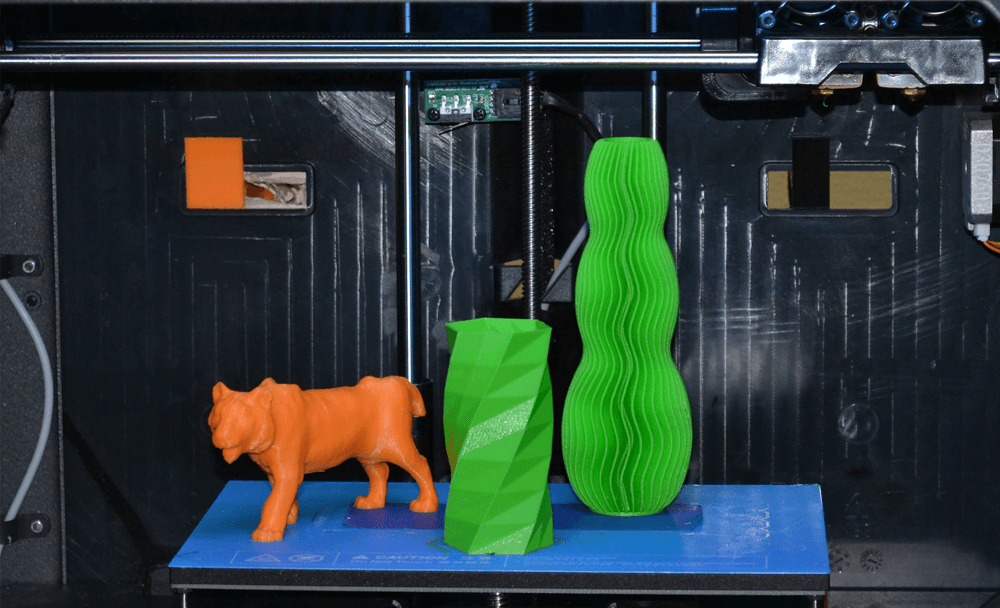Many factors need to be considered before one can conclude what will be the cost to 3D print a part and these factors hold importance in the price consideration because they can make the cost of the 3D print range from anywhere between $4 to $3000.
Let’s take a quick look at these underlying factors that tend to direct the cost to 3D print a part and analyze their importance:
Try Made by Aria Now
All information and uploads are secure and confidential.
Also Read: How Long Does It Take To 3D Print something?
Price of the 3D printer
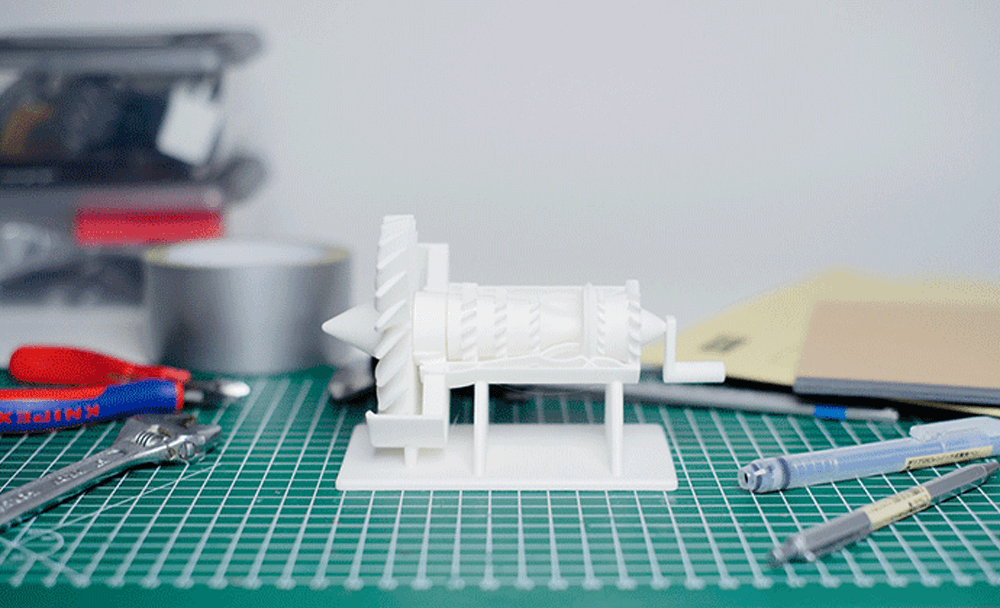
This is the first thing that comes to mind because a variety of printers for multiple purposes are available on the market hence the highly varying price range. For home users, beginners, or hobbyists, FFF (Fused Filament Fabrication) is the way to go because they cost just about a few hundred dollars, mainly between $200-$1,000 hence are cost-efficient and get the work done. An example of a FFF 3D printer is the ‘Artillery Sidewinder X1 V4’ which costs about $450 and has many practical features that are easy to understand and use for the users such as a touch screen display, a large build volume of (300mm x 300mm x 400mm) and is known to be a good long-term investment.
However, if the 3D printer is to be purchased for a more professional or industrial usage, FDM (Fused Deposition Modelling) is the type of printer one should go for and they cost significantly more with prices starting from $10,000 and going up to $150,000. One such 3D printer is Raise 3D Pro3 which easily costs about $7,249.
This factor is important to consider because if you own a personal 3D printer and if we were to disregard the initial buying cost, the final cost of printing a part will only consist of the cost of the electricity and the material cost which will be fairly low compared to if you were giving an order to a printing company.
Supposedly, if the printing company where you placed your order was using a $4000 3D printer and the printer will be used every day for 10 hours for the next year before it will be replaced, this means that
10 x 365 = 3650 total hours ® $4000/ 3650 = $1.1 per hour.
If the order you placed took 4 hours to be made, the company will charge you $4.4.
It is to be noted that the above calculations ignore the inclusion of electricity usage and material prices for easy understanding.
3D Model
The second factor that is to be taken under consideration is the model of the part that is to be printed. When an order is being placed, the complexity of the part decides two very important things:
- The direct cost with regards to the complexity according to the hours required.
- How experienced an artist is required for the job.
If the complexity of the 3D model that we want to be printed is a fairly simple texture with a detailed organic shape, the difficulty level is considered easy-medium because firstly, such models can be created by Junior 3D artists and the number of hours required can be between 2-20. The cost for such a complex model is predicted to be between $40 – $250.
When the complexity is increased and the model if a super detailed shape or has a very complex texture to it, its requirement also tends to increase. The artist now required to print such a 3D model needs to be a senior 3D artist and the hours required to put in can be well over 50 hours hence the cost increase is likewise, with the starting price of such models being $650 and then going higher.
The volume of the 3D model also affects the costs of the overall model because when the volume of a model is high then it takes more filaments to complete it, including the generated support. So if the volume of a model is high then the price also gets high. There are some ways to overcome this problem but it does not work with every model. It is that to hollow your model. There will be less volume if your model is not solid from the inside and the material cost will be reduced. Although estimating the volume is impossible, you should know about the model to understand and make an estimate of the model.
3D Printing Material
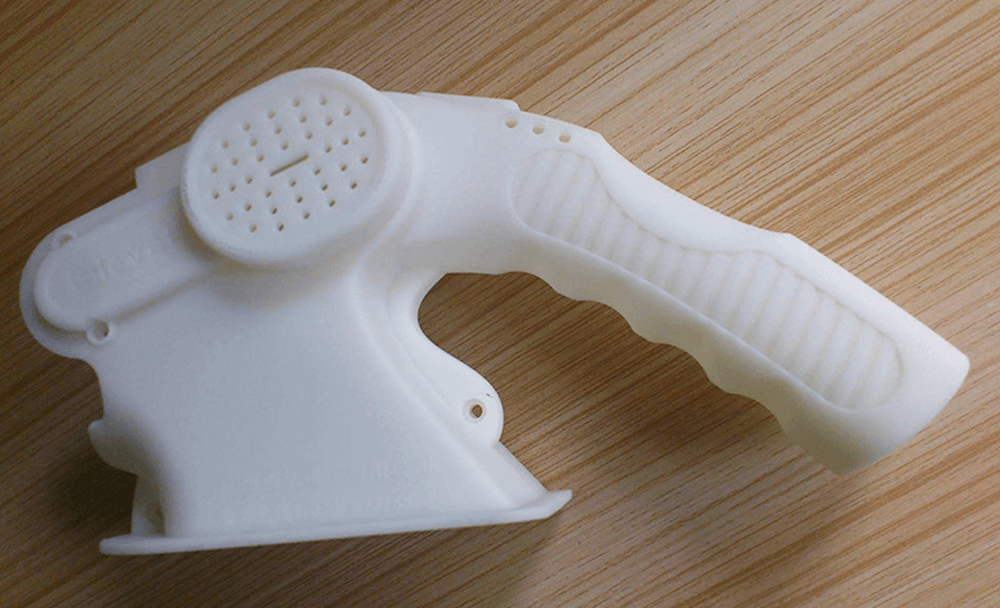
Material that is being used in the 3D printing of an object also defines the cost of the overall print or a part. Mainly there are two types of materials that are used in the printing that are filaments and resins. Resins are more expensive as compared to filaments. They are sold at the rate per KG and for resins are around $35 per KG, on the other hand, the filaments cost $20 per KG. The prices also vary in these because there are a lot of resins and filaments of different types so the cost is dependent on the material just like the entry-level SLA costs 50$ per liter and keeps increasing for the more professional options.
Post-processing of 3D printing
3D printing is not an instant process and the print just does not gets ready after painting. Several steps need to be done after 3D printing to enhance the print which includes curing, cleaning, sanding, and polishing. After the post process, the final product is considered to be ready if the company focuses more on the quality and looks of the print.
Polishing of 3D printing
Polishing is a post process that is done mostly to the filaments to enhance them, but it requires a lot of time and cost because labor is required for it. A lot of time is required to sand and then polish these products and even sometimes, due to the complex structure of the products, sanding becomes a very difficult task. After that much effort, the results will still not be of the same quality as resin.
For resin, it is comparatively simpler because in it the resin products just have to go through the UV rays to cure them, and then they can be easily hand polished. In this factor, the complexity of the 3D model matters a lot because some of them are hard to clean and polish. The labor required for it should be expertise in it and should have a lot of patience to clean them. Eventually, the labor cost and then the overall price of the product is increased.
Try Made by Aria Now
All information and uploads are secure and confidential.
Finishing of 3D printing
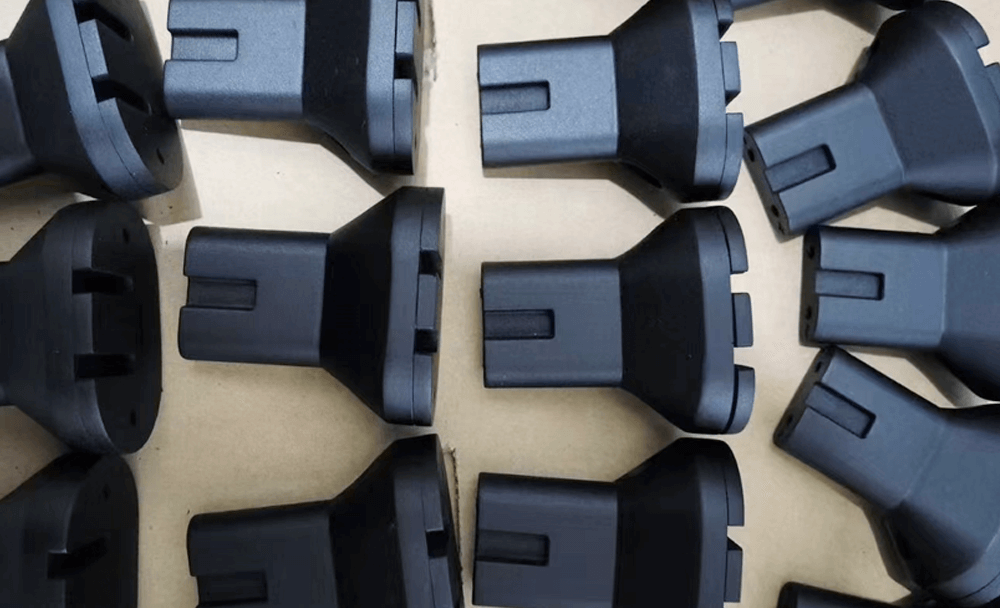
As mentioned above, the 3D printing is just not complete after the printing, some of the models require finishing. Some clients want to add a gold or metal plating on their prints and some of them require color on them. The time and cost depend on the 3D model again because a bigger model will require more time and cost than a smaller one. The color required on the prints can also be a complex task because some prints require painting the whole print of one color, meanwhile, some of them require very precise design and printing on them. In post-processing, the additional cost of the material and labor cost is added which affects the overall cost.
Profit Margin of 3D Models
After calculating all the production costs, a profit margin is kept on the 3D models to stay in the stay in business and make a profit out of it. Profit margins are somewhere between 50%-70% of the production cost. The production cost includes a lot of things like overheads, labor costs, and many more. Even if your print is being printed by fully automated printers, there will still be some labor involved to operate those 3D printers. The base price is set for the models so that if the cost of your model is less than the base price, then the base price will be charged to you.
Labor Cost
Labor cost is one of the most important factors when it comes to defining the cost. No matter how fully automated printers you are using, you will still need to have some labor to operate those machines. Models that require post-processing require labor because all of the post-processes are done with the labor manually like polishing, sanding, etc.
The small models that can be downloaded from the internet are not expensive as the designs of it are already available but there are a lot of models that have a very complex and difficult structure, parts, and preparation so they cost more than the smaller ones. Preparing support for SLA prints is a complex task and can take a longer time.
The labor cost of a model can increase dramatically in some cases because some parts are very difficult to draw and especially in new designs where the designers have to draw everything from the beginning. Some technical parts might seem simpler but take a very long time to design. On top of that the post-processing on the model can also increase depending upon the type of processes it will require to enhance it.
Overheads
Above all the material and post-processing costs, there are still some factors that add to the cost of the 3D models.
Maintenance and Service
Some of the 3D printing services providers, add the cost of maintenance and installation of your 3D model to the overall cost of it. This also includes the replacement of the odd consumable parts over some time. Some companies also provide monthly or annual maintenance or warranty of the products which is included in the service plan at the time of purchasing. Understanding the support in detail is an essential part as it adds certainty for the clients if something goes wrong.
- 3D printer Price
The price of the 3D printer varies a lot because there are a lot of products on the market. There is a range from the home user printers to the printers that are being used in the industries professionally to print complex and bigger models. FFF printers have a wide variety of printers at different prices from a few hundred dollars to thousands of dollars depending on the type of printer. Desktop SLA printers start from $2000- $3000 and on other hand, SLS printers are available in the range of $3000- $6000. Hobbyist machines are comparatively of a very low price and the industry scale machines of any technology cost significantly more.
The maintenance of the printers also adds to the cost because cleaning and maintaining the printers also require cost and time. For better print quality, the maintenance of the printer is very important so that there is no compromise on the services provided by the companies. Labor is also required to clean the printers and maintain them in the company so the services are not affected.
Energy
The energy that is used to power supply the printer also adds to the cost of 3D printing models. For regular use of 3D primates, the ultimate cost is $50 per year. To make a more precise calculation of the energy cost, check the consumption figures of your printer and make a calculation based dispensing on your usage of the printers and the local energy prices in your country.
Before getting into 3D printing, it is important to understand that 3D printing is an expensive service, so to calculate the cost of the model, the companies have to consider many factors that are above mentioned already like labor cost, overheads, post-processing, etc. The cost of all these factors and the materials collectively make the production cost of items and on top of that, they also have to add the profit margin to keep the business going. Most people consider buying the 3D printer in a long run to save these costs on the services only if you have regular use. But if you want to save time and want the expertise to look into your work, then you should go for hiring the services for the printing of your 3D models.
Get an instant quote for your 3D prints from https://app.madearia.com/ in a few easy steps:
- Drag your ‘.STL’ file, but for that make sure that you have the perfect design of your 3D model.
Choose the print settings on which you would like the printer to print the 3D model.
Select the right resolution for your 3D prints so that you can get the prints according to your requirements.
Try Made by Aria Now
All information and uploads are secure and confidential.
Categories
Share On
Recent Post
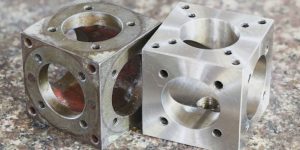
A Complete Guide on the Passivation of Stainless Steel
Have you ever thought about why stainless steel looks so

3D Printing Vs Injection Molding
Preparing for production is a crucial moment for any company.

Riveting vs Welding: Key Difference For Custom Sheet Metal Parts
Riveting and welding are the two most common metal joining

CNC Machining Tolerances Explained
CNC machining has revolutionized the manufacturing of complex parts, making

What is Thread Milling: Process, Types and Advantages
Making threads is perhaps one of the fundamental things you

A Complete Guide on the Passivation of Stainless Steel
Have you ever thought about why stainless steel looks so

3D Printing Vs Injection Molding
Preparing for production is a crucial moment for any company.


